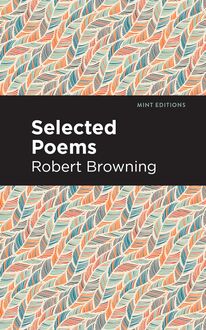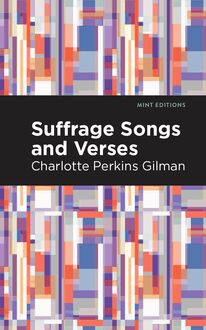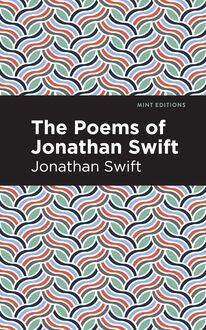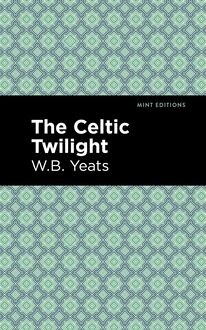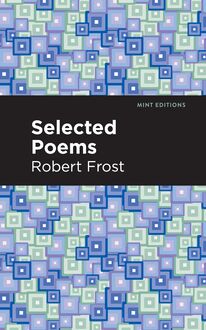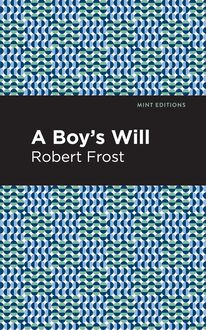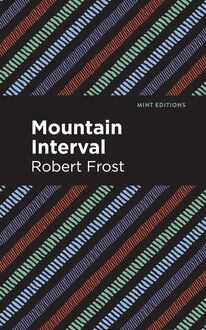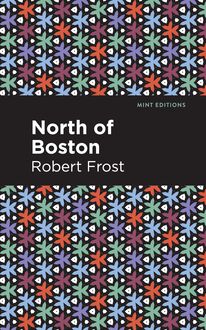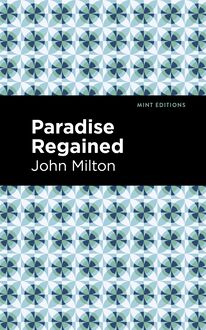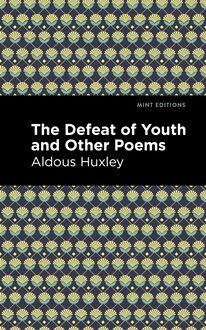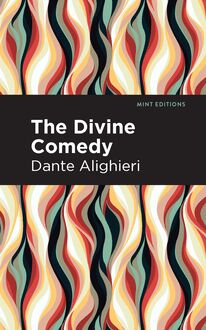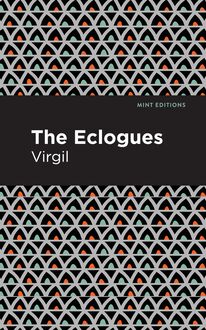-
 Univers
Univers
-
 Ebooks
Ebooks
-
 Livres audio
Livres audio
-
 Presse
Presse
-
 Podcasts
Podcasts
-
 BD
BD
-
 Documents
Documents
-
- Cours
- Révisions
- Ressources pédagogiques
- Sciences de l’éducation
- Manuels scolaires
- Langues
- Travaux de classe
- Annales de BEP
- Etudes supérieures
- Maternelle et primaire
- Fiches de lecture
- Orientation scolaire
- Méthodologie
- Corrigés de devoir
- Annales d’examens et concours
- Annales du bac
- Annales du brevet
- Rapports de stage
La lecture à portée de main
Vous pourrez modifier la taille du texte de cet ouvrage
Découvre YouScribe en t'inscrivant gratuitement
Je m'inscrisDécouvre YouScribe en t'inscrivant gratuitement
Je m'inscrisEn savoir plus
Vous pourrez modifier la taille du texte de cet ouvrage
En savoir plus

Description
The Celtic Twilight (1893) is a collection of stories written and edited by W.B. Yeats. Compiled at the height of the Celtic Twilight, a movement to revive the myths and traditions of Ancient Ireland, The Celtic Twilight captures a wide range of stories, songs, poems, and firsthand accounts from artists and storytellers dedicated to the preservation of Irish culture.
In “Belief and Unbelief,” a story is shared about a village at the foot of Ben Bulben. One day, a young girl disappears while walking through a local field. Fearful that the faeries have gotten her, the townspeople conduct a search of the village, checking every home while burning ragweed and reciting spells to ward off the mischievous spirits. “Mortal Help” discusses the interdependence of humans and faeries, who require the presence of the living in order to play games in the physical world. As evidence, an old ditch digger tells a story from his youth, when he witnessed a group of faeries playing the game of hurling not far from the field where he was working. In “A Knight of the Sheep,” an old farmer faces off with the local tax collector, and both struggle to maintain respect for one another while trading shrewdly concealed insults. “The Devil” discusses several demonic sightings among Irish peasants, who claim to have met Lucifer by the side of the road by day and under the bed at night. The Celtic Twilight captures the collision of ancient and modern Ireland, preserving its legends while ensuring their mystery remains.
With a beautifully designed cover and professionally typeset manuscript, this edition of W.B. Yeats’s The Celtic Twilight is a classic of Irish literature reimagined for modern readers.
Sujets
Informations
| Publié par | Mint Editions |
| Date de parution | 01 février 2021 |
| Nombre de lectures | 1 |
| EAN13 | 9781513275840 |
| Langue | English |
| Poids de l'ouvrage | 3 Mo |
Informations légales : prix de location à la page 0,0350€. Cette information est donnée uniquement à titre indicatif conformément à la législation en vigueur.
Extrait
The Celtic Twilight
W.B. Yeats
The Celtic Twilight was first published in 1893.
This edition published by Mint Editions 2020.
ISBN 9781513270845 | E-ISBN 9781513275840
Published by Mint Editions ®
minteditionbooks .com
Publishing Director: Jennifer Newens
Design & Production: Rachel Lopez Metzger
Project Manager: Micaela Clark
Typesetting: Westchester Publishing Services
Time drops in decay
Like a candle burnt out.
And the mountains and woods
Have their day, have their day;
But, kindly old rout
Of the fire-born moods,
You pass not away.
C ONTENTS T HE H OSTING OF THE S IDHE T HIS B OOK (I, II) A T ELLER OF T ALES B ELIEF AND U NBELIEF M ORTAL H ELP A V ISIONARY V ILLAGE G HOSTS “D UST H ATH C LOSED H ELEN’S E YE ” (I, II) A K NIGHT OF THE S HEEP A N E NDURING H EART T HE S ORCERERS T HE D EVIL H APPY AND U NHAPPY T HEOLOGIANS (I, II) T HE L AST G LEEMAN R EGINA , R EGINA P IGMEORUM , V ENI “A ND F AIR , F IERCE W OMEN ” E NCHANTED W OODS (I, II) M IRACULOUS C REATURES A RISTOTLE OF THE B OOKS T HE S WINE OF THE G ODS A V OICE K IDNAPPERS T HE U NTIRING O NES E ARTH , F IRE AND W ATER T HE O LD T OWN T HE M AN AND HIS B OOTS A C OWARD T HE T HREE O ’ B YRNES AND THE E VIL F AERIES D RUMCLIFF AND R OSSES T HE T HICK S KULL OF THE F ORTUNATE (I, II) T HE R ELIGION OF A S AILOR C ONCERNING THE N EARNESS T OGETHER OF H EAVEN , E ARTH , AND P URGATORY T HE E ATERS OF P RECIOUS S TONES O UR L ADY OF THE H ILLS T HE G OLDEN A GE A R EMONSTRANCE WITH S COTSMEN FOR H AVING S OURED THE D ISPOSITION OF THEIR G HOSTS AND F AERIES W AR T HE Q UEEN AND THE F OOL T HE F RIENDS OF THE P EOPLE OF F AERY D REAMS THAT H AVE N O M ORAL B Y THE R OADSIDE I NTO THE T WILIGHT
T HE H OSTING OF THE S IDHE
The host is riding from Knocknarea,
And over the grave of Clooth-na-bare;
Caolte tossing his burning hair,
And Niamh calling, “Away, come away;
Empty your heart of its mortal dream.
The winds awaken, the leaves whirl round,
Our cheeks are pale, our hair is unbound,
Our breasts are heaving, our eyes are a-gleam,
Our arms are waving, our lips are apart,
And if any gaze on our rushing band,
We come between him and the deed of his hand,
We come between him and the hope of his heart.”
The host is rushing ’twixt night and day;
And where is there hope or deed as fair?
Caolte tossing his burning hair,
And Niamh calling, “Away, come away.”
T HIS B OOK
I
I HAVE DESIRED, LIKE EVERY artist, to create a little world out of the beautiful, pleasant, and significant things of this marred and clumsy world, and to show in a vision something of the face of Ireland to any of my own people who would look where I bid them. I have therefore written down accurately and candidly much that I have heard and seen, and, except by way of commentary, nothing that I have merely imagined. I have, however, been at no pains to separate my own beliefs from those of the peasantry, but have rather let my men and women, dhouls and faeries, go their way unoffended or defended by any argument of mine. The things a man has heard and seen are threads of life, and if he pull them carefully from the confused distaff of memory, any who will can weave them into whatever garments of belief please them best. I too have woven my garment like another, but I shall try to keep warm in it, and shall be well content if it do not unbecome me.
Hope and Memory have one daughter and her name is Art, and she has built her dwelling far from the desperate field where men hang out their garments upon forked boughs to be banners of battle. O beloved daughter of Hope and Memory, be with me for a little.
1893
II
I HAVE ADDED A FEW more chapters in the manner of the old ones, and would have added others, but one loses, as one grows older, something of the lightness of one’s dreams; one begins to take life up in both hands, and to care more for the fruit than the flower, and that is no great loss per haps. In these new chapters, as in the old ones, I have invented nothing but my comments and one or two deceitful sentences that may keep some poor story-teller’s commerce with the devil and his angels, or the like, from being known among his neighbours. I shall publish in a little while a big book about the commonwealth of faery, and shall try to make it systematical and learned enough to buy pardon for this handful of dreams.
1902
W. B. Y EATS
A T ELLER OF T ALES
Many of the tales in this book were told me by one Paddy Flynn, a little bright-eyed old man, who lived in a leaky and one-roomed cabin in the village of Ballisodare, which is, he was wont to say, “the most gentle”—whereby he meant faery—“place in the whole of County Sligo.” Others hold it, however, but second to Drumcliff and Drumahair. The first time I saw him he was cooking mushrooms for himself; the next time he was asleep under a hedge, smiling in his sleep. He was indeed always cheerful, though I thought I could see in his eyes (swift as the eyes of a rabbit, when they peered out of their wrinkled holes) a melancholy which was well-nigh a portion of their joy; the visionary melancholy of purely instinctive natures and of all animals.
And yet there was much in his life to depress him, for in the triple solitude of age, eccentricity, and deafness, he went about much pestered by children. It was for this very reason perhaps that he ever recommended mirth and hopefulness. He was fond, for instance, of telling how Collumcille cheered up his mother. “How are you to-day, mother?” said the saint. “Worse,” replied the mother. “May you be worse to-morrow,” said the saint. The next day Collumcille came again, and exactly the same conversation took place, but the third day the mother said, “Better, thank God.” And the saint replied, “May you be better to-morrow.” He was fond too of telling how the Judge smiles at the last day alike when he rewards the good and condemns the lost to unceasing flames. He had many strange sights to keep him cheerful or to make him sad. I asked him had he ever seen the faeries, and got the reply, “Am I not annoyed with them?” I asked too if he had ever seen the banshee. “I have seen it,” he said, “down there by the water, batting the river with its hands.”
I have copied this account of Paddy Flynn, with a few verbal alterations, from a note-book which I almost filled with his tales and sayings, shortly after seeing him. I look now at the note-book regretfully, for the blank pages at the end will never be filled up. Paddy Flynn is dead; a friend of mine gave him a large bottle of whiskey, and though a sober man at most times, the sight of so much liquor filled him with a great enthusiasm, and he lived upon it for some days and then died. His body, worn out with old age and hard times, could not bear the drink as in his young days. He was a great teller of tales, and unlike our common romancers, knew how to empty heaven, hell, and purgatory, faeryland and earth, to people his stories. He did not live in a shrunken world, but knew of no less ample circumstance than did Homer himself. Perhaps the Gaelic people shall by his like bring back again the ancient simplicity and amplitude of imagination. What is literature but the expression of moods by the vehicle of symbol and incident? And are there not moods which need heaven, hell, purgatory, and faeryland for their expression, no less than this dilapidated earth? Nay, are there not moods which shall find no expression unless there be men who dare to mix heaven, hell, purgatory, and faeryland together, or even to set the heads of beasts to the bodies of men, or to thrust the souls of men into the heart of rocks? Let us go forth, the tellers of tales, and seize whatever prey the heart long for, and have no fear. Everything exists, everything is true, and the earth is only a little dust under our feet.
B ELIEF AND U NBELIEF
There are some doubters even in the western villages. One woman told me last Christmas that she did not believe either in hell or in ghosts. Hell she thought was merely an invention got up by the priest to keep people good; and ghosts would not be permitted, she held, to go “trapsin about the earth” at their own free will; “but there are faeries,” she added, “and little leprechauns, and water-horses, and fallen angels.” I have met also a man with a mohawk Indian tattooed upon his arm, who held exactly similar beliefs and unbeliefs. No matter what one doubts one never doubts the faeries, for, as the man with the mohawk Indian on his arm said to me, “they stand to reason.” Even the official mind does not escape this faith.
A little girl who was at service in the village of Grange, close under the seaward slopes of Ben Bulben, suddenly disappeared one night about three years ago. There was at once great excitement in the neighbourhood, because it was rumoured that the faeries had taken her. A villager was said to have long struggled to hold her from them, but at last they prevailed, and he found nothing in his hands but a broomstick. The local constable was applied to, and he at once instituted a house-to-house search, and at the same time advised the people to burn all the bucalauns (ragweed) on the field she vanished from, because bucalauns are sacred to the faeries. They spent the whole night burning them, the constable repeating spells the while. In the morning the little girl was found, the story goes, wandering in the field. She said the faeries had taken her away a great distance, riding on a faery horse. At last she saw a big river, and the man who had tried to keep her from being carried off was drifting down it—such are the topsy-turvydoms of faery glamour—in a cockleshell. On the way her companions had mentioned the names of several people who were about to die shortly in the village.
Perhaps the constable was right. It is better doubtless to believe much unreason and a little truth than to deny for denial’s sake truth and unreason alike, for when we do this we have not
-
 Univers
Univers
-
 Ebooks
Ebooks
-
 Livres audio
Livres audio
-
 Presse
Presse
-
 Podcasts
Podcasts
-
 BD
BD
-
 Documents
Documents
-
Jeunesse
-
Littérature
-
Ressources professionnelles
-
Santé et bien-être
-
Savoirs
-
Education
-
Loisirs et hobbies
-
Art, musique et cinéma
-
Actualité et débat de société
-
Jeunesse
-
Littérature
-
Ressources professionnelles
-
Santé et bien-être
-
Savoirs
-
Education
-
Loisirs et hobbies
-
Art, musique et cinéma
-
Actualité et débat de société
-
Actualités
-
Lifestyle
-
Presse jeunesse
-
Presse professionnelle
-
Pratique
-
Presse sportive
-
Presse internationale
-
Culture & Médias
-
Action et Aventures
-
Science-fiction et Fantasy
-
Société
-
Jeunesse
-
Littérature
-
Ressources professionnelles
-
Santé et bien-être
-
Savoirs
-
Education
-
Loisirs et hobbies
-
Art, musique et cinéma
-
Actualité et débat de société
- Cours
- Révisions
- Ressources pédagogiques
- Sciences de l’éducation
- Manuels scolaires
- Langues
- Travaux de classe
- Annales de BEP
- Etudes supérieures
- Maternelle et primaire
- Fiches de lecture
- Orientation scolaire
- Méthodologie
- Corrigés de devoir
- Annales d’examens et concours
- Annales du bac
- Annales du brevet
- Rapports de stage

